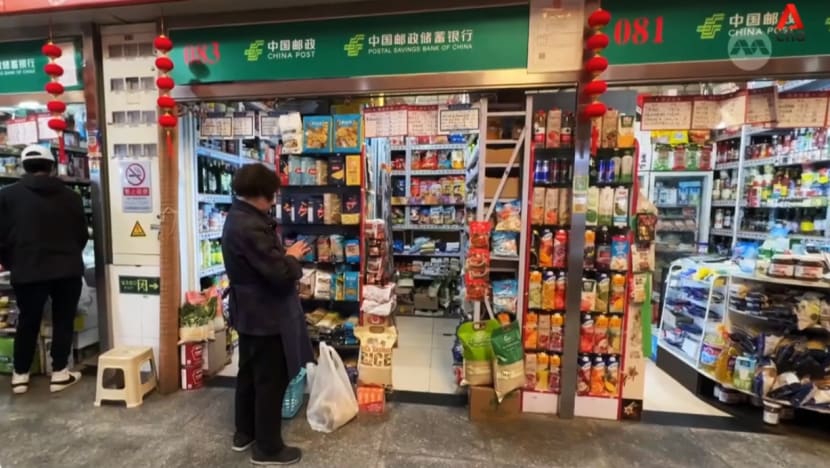Artist behind Vancouver shoe display commemorating residential school victims reflects on past year
[ad_1]
WARNING: This story contains distressing information.
Dozens of folks marked the anniversary of the screen of shoes on the measures of the Vancouver Art Gallery Saturday, positioned there after suspected unmarked graves ended up learned on the grounds of a previous residential school in Kamloops last 12 months.
On Saturday, Haida artist Tamara Bell, alongside with other people, held a ceremony to mirror on the 12 months that has passed considering the fact that she organized 215 pairs of footwear on the techniques of the artwork gallery, a former provincial courthouse.
She positioned the sneakers to signify the a lot more than 200 little ones whose unmarked graves had been believed to have been discovered with ground-penetrating radar previously in May well 2021 by the Tk̓emlúps te Secwépemc 1st Country at the previous Kamloops Indian Household University internet site.
“A reminder of the number of kids who have been discovered at web-sites across the place at household faculties,” explained Bell. “We have to get to the truth of the matter prior to we can get to reconciliation and without the need of real truth, reconciliation is unattainable.”
Immediately after Bell installed the 215 sneakers on May well 28, 2021, many people today in the town gathered at the internet site to mirror on the discovery and added other sneakers, stuffed animals, toys and artwork as a way to cope with the discovery in Kamloops.

The National Centre for Truth of the matter and Reconciliation (NCTR) has said about 4,100 kids died at household educational facilities in Canada, but that the true whole is significantly greater.
A significant quantity of Indigenous children who were being forcibly despatched to household faculties under no circumstances returned property.
The discovery in Kamloops in May perhaps 2021 commenced a national reckoning about Canada’s past and its treatment of Indigenous people. Lots of other nations have because produced additional discoveries of suspected unmarked graves across the place.
Other memorials, comparable to the 1 in Vancouver, were set up in other cities across Canada.
On Monday, a significant ceremony marking the anniversary of the discovery in Kamloops was held by the Tk̓emlúps te Secwépemc 1st Country, which was attended by Prime Minister Justin Trudeau and Governor Typical of Canada Mary Simon.
“People really don’t actually have an understanding of or grasp the importance of the trauma about 500 many years that Indigenous people have experienced via,” stated Bell on Saturday on the ways of the Vancouver Art Gallery.

She hopes the memorial will assistance persuade the change wanted from Canadians to figure out the country’s colonial past and reach reconciliation as established out by the NCTR.
William Nahanee, a residential school survivor, was at the artwork gallery on Saturday.
“We have a much better possibility, I think as a survivor, that Very first Nations persons, specified the appropriate option, can develop into a correct part of this escalating Canadian society that we all want,” he stated.
The Kamloops Indian Household Faculty ran from 1890 to 1969, when the federal governing administration took more than administration from the Catholic Church to function it as a residence for a working day school, right until it closed in 1978.
As many as 500 kids from Initial Nations communities throughout B.C. and beyond would have been registered at the school at any presented time, according to the NCTR.
Guidance is accessible for any one influenced by their encounter at household schools or by the latest stories.
A national Indian Residential University Crisis Line has been set up to give aid for previous college students and individuals influenced. People can accessibility emotional and disaster referral services by contacting the 24-hour national crisis line: 1-866-925-4419.
Do you have details about unmarked graves, young children who in no way arrived household or residential faculty workers and operations? Electronic mail your tips to CBC’s new Indigenous-led team investigating residential universities: [email protected].
[ad_2]
Resource website link





